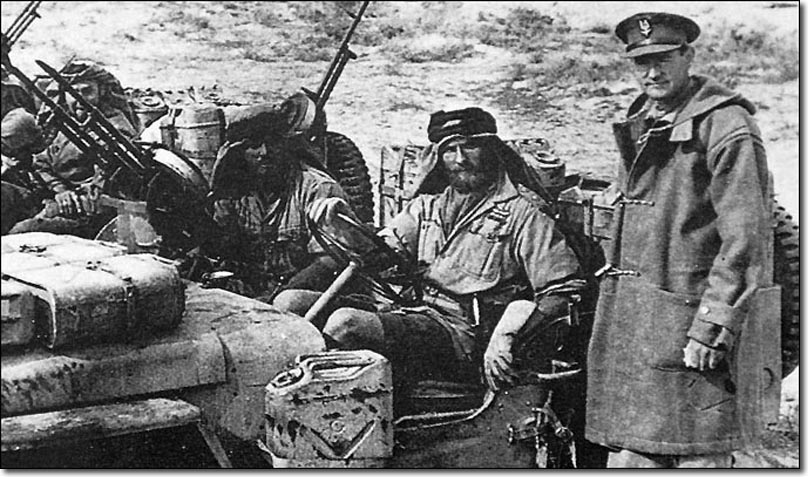|
|


|
|
This SAS Second World War hero played an unexpected role in post-war Central African politics when he advocated the creation of the so-called Capricorn Society. This was a liberal time for its era, but would later be criticised by black nationalists as being a complicated way to maintain white dominance in Africa. At its heart was the idea of an African citizenship for all but with complicated electoral colleges for the various groupings. It fell between the two stools of black nationalists who wanted one person, one vote and white settlers who were determined to preserve their privileges.
Below is an article about the society at its height of influence in 1956 at the Salima conference in Nyasaland. While Africa strained under the growing pressure of racial tension, a strange and polychromic group of idealists, white, black and brown, gathered last week on the southern shore of Nyasaland's windy and beautiful Lake Nyasa. From every corner of east and central Africa, by every means of transportation, they traveled to a wooded rise perched above the surf-tossed shores where lions and gazelles had roamed only a few weeks before. With them they brought an idea that they hope will change all Africa into a land without racial barriers or bitterness. The site of the Capricorn Africa Society's first convention was proof of the difficulties they face. In order to ensure that its 150 delegates could talk, eat and live together, the Capricorn Society took over the site of an abandoned British hotel on the lake, hundreds of miles from a major white settlement. There workers constructed a small city--Capricorntown--complete with refurbished hotel, thatched huts, marked-off lanes, a huge grass-thatched bwalo (meeting hall) and symmetrical rows of small tents. Free and Equal. The society's real aim is refurbishing ideas. It was founded in 1949 by Colonel David Stirling, 40, a hard-driving bachelor who led a commando unit in daring raids against Rommel behind German lines in the western desert. Settling in Rhodesia after the war, Scottish-born Stirling was shocked by the rising racial hatred he saw everywhere. He decided to do something about it "before total catastrophe overtakes both white and non-white societies." His plan: a society of all Africans, regardless of color, in which each would have equal rights and--as he fulfilled certain requirements--a basic vote. Today, Capri corn's 5,000 members--about equally divided between colored and white--confine their work to the British lands between the equator and the Tropic of Capricorn (the two Rhodesias and Nyasaland, Kenya and Tanganyika).* But they have designs on the whole continent. For the first time in their lives, Capricorn's delegates sat in free and equal congress last week to consider their common problems. Sir William Murphy, ex-governor of the Bahamas, and Lady Murphy sat side by side with three Kikuyu tribesmen who had defied Mau Mau threats of assassination to travel from Kenya. Peppery little Author Alan (Cry, the Beloved Country) Paton came in from Natal, mingled with white doctors and teachers and black farmers. At night, over beer and sandwiches, everyone lounged together and talked, while tall, lanky David Stirling strolled about, arguing, urging, explaining. The convention's chief work was the approval of a "Capricorn contract between the races," which would replace racial loyalties with African patriotism. Since it had already gone through eleven drafts, the resolution passed largely without dissent. Some of its provisions: 1) common citizenship in each territory; 2) single voting roll for all citizens, but more than one vote for specially qualified citizens; 3) gradual release of all land to buyers, regardless of race; 4) improved educational standards so that children of all races can eventually be taught in the same schools. The Capricorn Society's idea for multiple votes (up to six for anyone with such qualifications as higher education, property holding and military service) derive from Nevil Shute's novel In the Wet. The society's next step: getting these provisions enacted into law in each territory. The Opposition. Blacks have criticized the Capricorn Society because they feel that its multiple vote is merely a device to preserve white supremacy; whites who think Capricorn's sponsors are dilettantes out of touch with reality bitterly refer to it as the "Leprechaun Africa Society." To show their determination, members are ready to run for office to get their ideas adopted. The idealists left Lake Nyasa's shores knowing that theirs is an uphill struggle: in Salisbury, Southern Rhodesia, as the party sheepishly separated to return to segregated life, they were eyed with a mixture of scorn and antipathy. But, asked Alan Paton: "If this has no chance in Africa, what chance has anything in Africa?" Originally published in Time magazine July 02, 1956 |
Rhodesia | Rhodesia Individuals
Armed Forces | Art and Culture | Articles | Biographies | Colonies | Discussion | Glossary | Home | Library | Links | Map Room | Sources and Media | Science and Technology | Search | Student Zone | Timelines | TV & Film | Wargames